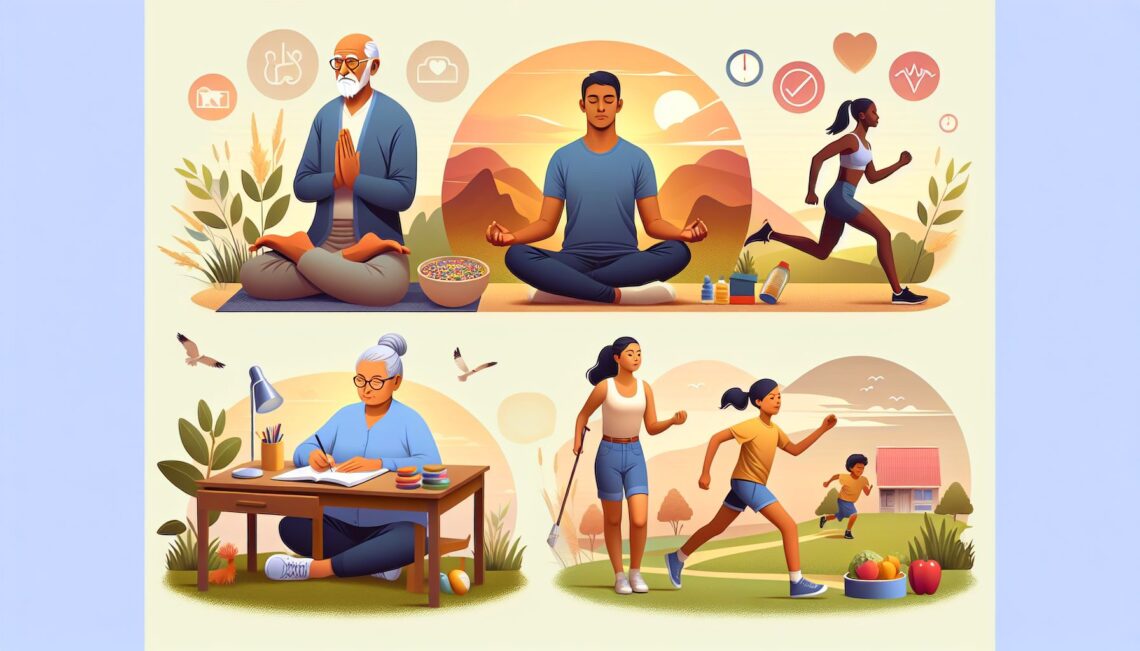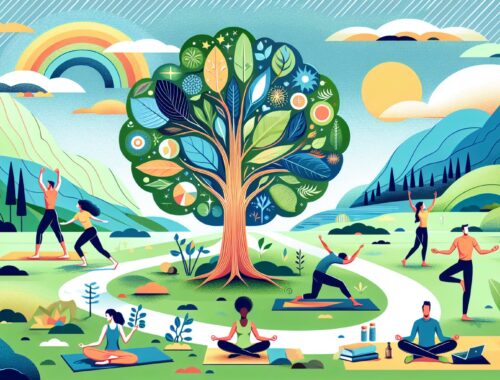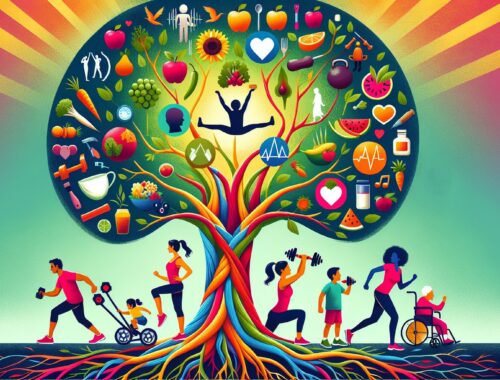
Overall Health and Wellness: A Guide for All Ages
When it comes to maintaining a healthy lifestyle, there is no one-size-fits-all solution. However, there are certain principles and habits that can benefit people of all ages. In this article, we will explore the key components of overall health and wellness and offer practical tips for young and old alike. By incorporating personal health, physical therapy, mental health, and alternative medicine, we can all take proactive steps towards a happier, healthier life.
Introduction: Prioritizing Your Well-being
Ensuring overall health and wellness is not a one-time decision, but an ongoing commitment to taking care of yourself. It is important to acknowledge that our bodies undergo changes as we age, requiring different approaches to maintain optimal well-being. The key is to strike a balance between physical, mental, and emotional health, while also considering alternative practices that can support our overall well-being.
Personal Health: A Foundation for Wellness
Promoting personal health lays the groundwork for a balanced lifestyle. This includes regular exercise, healthy eating habits, and sufficient sleep. Regardless of age, maintaining an active lifestyle is essential. For the younger audience, indulging in physical activities such as sports, dancing, or swimming can be both fun and beneficial. As we grow older, it becomes equally important to engage in activities that promote strength, flexibility, and balance, such as yoga, tai chi, or light strength training.
Proper nutrition is equally vital. Younger individuals need to prioritize a well-balanced diet, rich in fruits, vegetables, whole grains, and lean proteins to support growth and development. Older individuals should focus on maintaining a diverse diet that offers essential nutrients while reducing the risk of chronic conditions. Consulting with a registered dietitian can provide personalized guidance catered to your specific needs.
Regardless of age, ample sleep is crucial for overall health. Young individuals require more hours of sleep, typically between 8-10 hours, to support brain development and ensure optimal growth. Older individuals should aim for 7-9 hours of quality sleep to promote memory, mental clarity, and physical recovery.
Physical Therapy: Active Aging
Physical therapy plays a significant role in promoting mobility, reducing pain, and improving overall quality of life at any age. For the younger audience, it can aid in injury prevention and support recovery from athletic injuries. Engaging in regular stretching routines, warm-ups, and cool-downs can help reduce the risk of muscle strains, overuse injuries, and joint pain.
As we age, physical therapy becomes even more imperative. It can assist in managing chronic conditions such as arthritis, osteoporosis, or cardiovascular disease. A physical therapist can create tailored exercise programs to improve flexibility, strength, and balance, minimizing the risk of falls and enhancing independence.
Mental Health: Nurturing the Mind
Caring for our mental health is equally important as tending to our physical well-being. For the young audience, managing stress, building healthy relationships, and finding effective coping mechanisms are crucial. Engaging in hobbies, spending time with loved ones, and seeking help when needed can promote emotional resilience.
The older audience should focus on maintaining cognitive function and emotional well-being. Activities that challenge the brain, like puzzles or reading, can help preserve memory and concentration. Additionally, cultivating strong social connections and participating in meaningful activities can reduce the risk of conditions like depression and dementia.
Alternative Medicine: Exploring Holistic Wellness
While conventional medicine plays a key role in our health, alternative practices can complement our overall well-being. Acupuncture, chiropractic care, and herbal remedies are just a few examples of alternative medicine. For the young audience, exploring these practices should be done under the guidance of a healthcare professional.
As we age, falling back on alternative practices can help manage chronic pain, improve sleep quality, and reduce stress. However, it is crucial to consult with a qualified practitioner and ensure that these practices align with your existing healthcare regimen.
Conclusion: Embrace the Journey to Wellness
Achieving overall health and wellness is a lifelong journey that requires dedication and self-care. Prioritizing personal health, considering physical therapy, nurturing mental well-being, and exploring alternative practices can contribute to a holistic approach to wellness that benefits individuals of all ages.
Remember, everyone’s journey is unique, and it is essential to listen to your body and consult healthcare professionals as needed. By embracing these principles, we can all move towards a healthier, happier future, living our lives to the fullest.
You May Also Like

The Importance of Overall Health and Wellness for Humans
December 10, 2023
Quick and Effective Ways to Get Rid of a Cold for the Elderly
March 16, 2024

